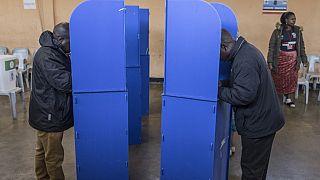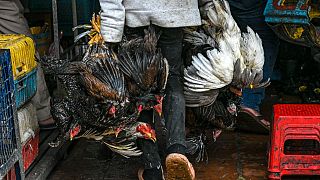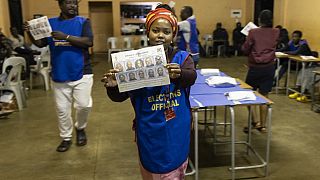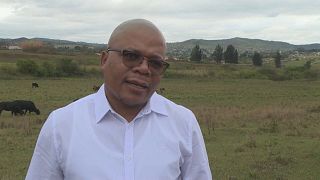Eswatini
Voters in Eswatini began casting their ballots on Friday for legislative elections taking place in Africa's last absolute monarchy.
The 500,000 registered voters will select 59 members of the lower house of parliament, whose sole role is in advising King Mswati III.
Any political change is unlikely in the kingdom where the monarch wields absolute power and political parties are banned.
In 2021, the country formerly known as Swaziland was shaken by pro-democracy protests that were violently quashed by security forces. At least 46 people were killed.
On Friday, however, as polling stations opened there was no sign of turmoil.
The candidates running were nominated by traditional chiefs close to the king. Most remain loyal to King Mswati.
A foregone conclusion
The opposition believe the results, to be announced within a few days, to be a foregone conclusion.
""They are saying that there are elections that are free and fair (but) there is nothing like that," says Sakhile Nxumalo, 28, who heads the Swaziland Youth Congress, the youth wing of a banned pro-democracy party.
"We don't take this election seriously because they serve the interests of only a few."
"We live in a dictatorship. If one raises his voice, the police come knocking at his door at night and charge him for treason or something," said Thantaza Silolo, spokesperson for the largest opposition group, the Swaziland Liberation Movement (Swalimo).
High unemployment rates
Poverty persists in the southern African country where youth unemployment rates are particularly high.
In 2021, overall unemployment was at 33.3% and youth unemployment for those aged between 15 to 24 was at 59.1%.
"Life in Eswatini is terrible, terrible," said Phinah Nxumalo, 58, who sells spinach and dried corn kernels.
"Our kids are educated, we groom them but they're staying at home because there's no job. It doesn't make sense."












01:08
Mozambique: Opposition leader Venancio Mondlane faces legal action
01:00
Somaliland counts votes after pivotal election
00:58
Voting underway in Somalia's breakaway region of Somaliland
01:07
Opposition leader leads polls in Ghana's presidential race
02:10
Mixed reactions to Trump victory among residents in the Democratic Republic of Congo
01:09
South Africa closes main border with Mozambique, citing safety concerns amid post-election protests